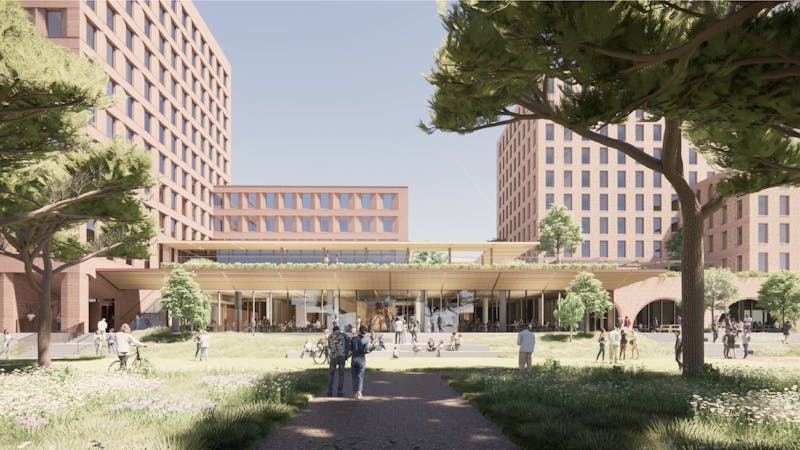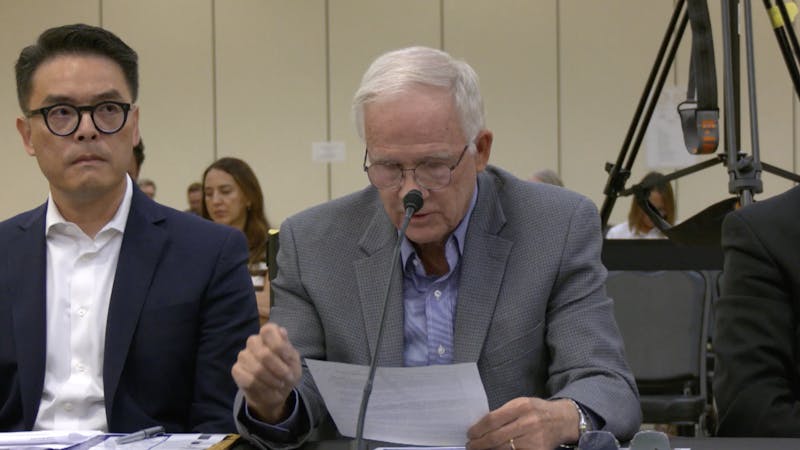Rice Pride extends honorary membership to Texas public university students

Cali Liu / Thresher
The Queer Resource Center was opened to Houston Hillel for co-hosted events and gatherings on campus.
As Texas closes the doors of queer resource centers at public universities across the state, Rice Pride is opening theirs. On June 14, Gov. Greg Abbott signed a law banning diversity, equity and inclusion offices and initiatives at state-funded universities in Texas, as well as the hiring or assignment of an employee to conduct DEI office duties.
Despite the law not officially going into effect until January 2024, the University of Houston has already disbanded their Center for Diversity and Inclusion, as well as the school’s LGBTQ Resource Center. After hearing about UH’s center closing down, Rice Pride’s executive board released a statement saying they were planning to extend honorary membership to students at public universities in Texas, allowing them to utilize resources and find community within Rice’s Queer Resource Center.
Cole Holladay, a co-president of Rice Pride, said that discussions surrounding what their organization could do to support university students affected by Bill 17 began as soon as the law was introduced. While reviewing Rice Pride’s constitution to reapply as a student organization for this semester, they found their solution.
“After a really close reading, we found a clause that talked about how we could extend honorary membership to people from the community, or grad students and other people, which was not something that we had really seen before,” Holladay, a Martel College junior, said. “But because it was already in our Constitution and had been approved before, we were like, ‘Okay, there’s infrastructure, this is something we could do.’”
Though originally intimidated by joining Rice Pride, Holladay said they found encouragement from Orientation Week parents that encouraged them to start visiting the QRC freshman year. They now see the QRC as a space vital to LGBTQ+ community building and said that extending this community just felt like the right thing to do.
“The Senate Bill that we’re seeing and a lot of other legislation we’re seeing coming out of Texas right now is very obviously an attack on the queer community,” Holladay said. “In times like these, I think having a supportive community where you can experience joy and experience grief or whatever it is you need to experience, and having that support come from other people who understand, is really important.”
For Jorge Arnez Gonzales, a Rice Pride co-president, the QRC has become a place for him to express his queer identity in a way he couldn’t in high school. An international student from Bolivia, Arnez Gonzales said that growing up without LGBTQ+ resources has made this decision especially important to him personally.
“I grew up without having any of these resources back in my home country. I don’t think there’s any university I know of [in Bolivia] that has a queer-specific resource center,” Arnez Gonzalez said. “When legislation tries to divide us up or bring some of us down, it’s the responsibility of the people who are less affected to help those who are being specifically targeted or affected.”
Extending this membership to outside communities isn’t without its challenges, though. Now that Rice Pride membership has nearly doubled, Holladay said funding will be a large obstacle in hosting events and sharing resources such as contraceptives and safe sex materials.
Paige Fastnow, a QRC coordinator, said that the QRC is currently brainstorming ways to handle other logistical challenges as well. New honorary members are coming from all over Texas, not just the Houston area, and Rice Pride hopes to make their resources and events as accessible as possible.
“At least for the general body meetings, we’re really hoping to have a digital way of accessing that,” Fastnow, a Duncan College sophomore, said. “With some of our bigger events, we’re also hoping to find ways to get events, we’re also hoping to find ways to get in contact with the Rice shuttle program to get shuttles between some of our more popular campuses.”
Both Holladay and Fastnow also emphasized that this movement to extend QRC resources to Texas universities is student-run.
“It’s interesting to see a lot of the non-Rice community’s reaction to the steps we’re taking because people assume [it’s] being done by the university, not a student-run movement,” Fastnow said. “I’m really hoping that with the large spotlight that’s on Rice Pride right now, it will convince the administration to also be much more vocal in their support for rights.”
Rice Pride has received 119 interest forms for becoming an honorary member so far, Holladay said. One of the students is Landon Richie, a senior at UH. An avid advocate for LGBTQ+ rights since he was 12 and current co-president of the Deeds Not Words chapter at UH, Richie said he has found community in UH’s queer resource center since starting as a freshman in 2020 in the midst of COVID-19.
“When I was able to start coming on campus, the center was one of the first places I went to try and start building community and finding friends to really make my time worthwhile and feel connected to the people who I was going to school with,” Richie said. “I think that’s going to be one of the hardest things to lose, at least initially.”
Richie said that UH’s LGBTQ+ resource center officially closed on Aug. 31 and is being replaced, along with the school’s Center for Diversity and Inclusion, with a more general Center for Student Advocacy and Community. Richie said he has heard many students have been hit hard by the loss of the LGBTQ+ resource center.
“I’m especially excited about Rice’s efforts to expand membership to any student as a display of solidarity and connection within the struggle,” Richie said. “If there can be a silver lining to the really harmful policy coming down from Austin, it’s this invigoration of community, fighting for one another, being in shared struggle … and building something beautiful in response to the loss of community space for our students.”
Fastnow also said this decision to open up the QRC will allow LGBTQ+ Rice students to further their community and connections beyond the hedges.
“One thing I’ve noticed is that it’s still very hard to find other trans people around any queer space,” Fastnow said. “But as those spaces get bigger, at least for me personally as a trans woman, it’s really cool that I get to meet more trans people and have a larger sense of community even within the queer community.”
“I think that Rice gets very insular at times,” she added. “In order to push away from that, steps like these not only make the queer community in Texas have more resources through us, but it also gives Rice students the opportunity to have more community outside that.”
More from The Rice Thresher

Rice announces Chao College as 12th residential college
Rice announced that the 12th residential college will be named Ting Tsung and Wei Fong Chao College Aug. 19. The college, set to open in fall 2026, will contain nearly 300 on-campus beds.
Dining access fund announced following on-campus unlimited meal swipes
Rice announced new food assistance programs on Tuesday to account for the controversial change in the on-campus meal swipe plan.

Rice disaster prediction model discussed at hearing on deadly Central Texas floods
The House and Senate Select Committees on Disaster Preparedness and Flooding held a hearing on July 31 in Kerrville to address the deadly July 4 flooding in Central Texas. The flooding along the banks of the Guadalupe River killed 108 people, including 37 children. In the charged hearing, Texas lawmakers and flood survivors criticized the local response to the disaster.


Please note All comments are eligible for publication by The Rice Thresher.